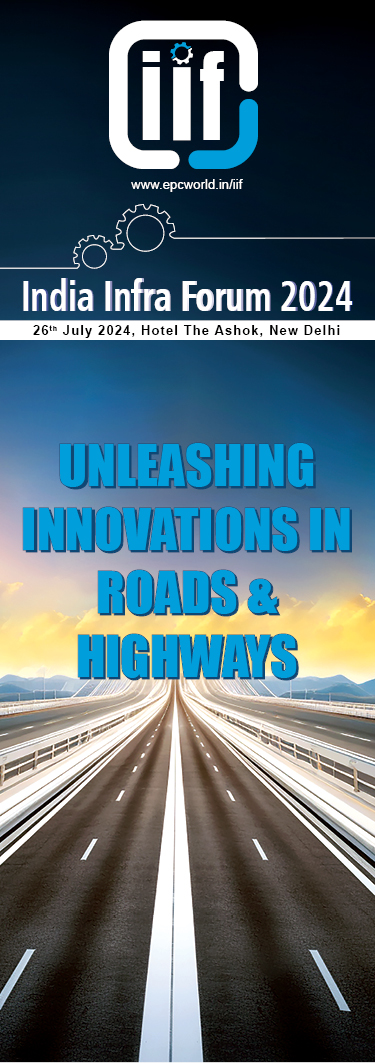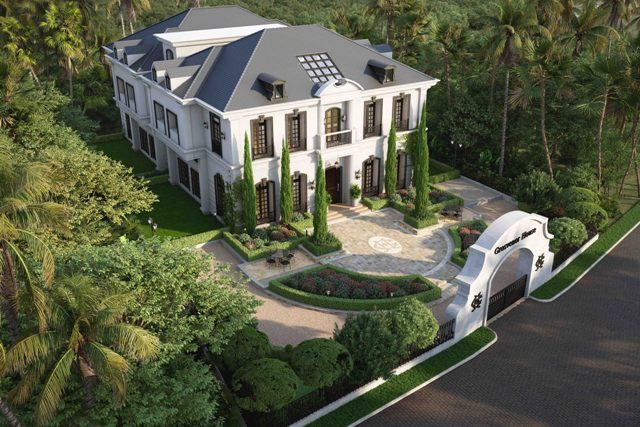by Lindsay Bernard Rodrigues, CEO & Co-Founder, The Bennet and Bernard Company
As the affluent millennial population in India continues to grow, there has been a discernible change in their priorities. The middle and upper-middle classes are no longer content with just physical dwellings but have shifted their focus towards sustainable living that integrates technology, opulence, efficient communication, and mobility. This growing populace is seeking advanced and innovative solutions to enable them to achieve their goals of a luxurious yet eco-friendly lifestyle.
The Indian real estate sector, which surged and underwent a significant shift in 2023, is anticipated to propel demand throughout 2024. According to a recent report by NAREDCO-Knight Frank, the Indian Realty market is poised for substantial expansion, potentially reaching a valuation of USD 5.8 trillion by 2047, a stark rise from its USD 477 billion valuation in 2023. Real estate consultancy firm Anarock estimates that housing sales may surge by 30 percent this year, culminating in a record 4.74 lakh units sold in primary markets, with the total value of residential property transactions expected to reach an astounding Rs 4.5 lakh crore.
The Next-Gen Realty developers find themselves confronted with a distinctive challenge and an equally unique opportunity to furnish customers with bespoke and sustainable offerings, seamlessly integrated with the concept of eco-friendly domiciles. Meticulous attention to detail regarding location, choice of materials, ecological impact, and the ethos of environmental stewardship has engendered a plethora of projects spanning the expanse of India. According to McKinsey, the construction and upkeep of built environments are accountable for approximately 26 percent of total greenhouse gas emissions and 37 percent of emissions stemming from combustion, thereby rendering sustainability a fundamental tenet and an indispensable component of designs conceived by newer real estate enterprises. Anarock's report indicates that green edifices harbour the potential to curtail energy consumption by 20-30 percent and water usage by 30-50 percent, thereby rendering them the preferred choice for the foreseeable future.
Indians are increasingly drawn to exploring new locales, even venturing into remote areas within popular tourist destinations like Kerala, Karnataka, Goa, Maharashtra, Himachal Pradesh, Uttarakhand, and Jammu & Kashmir. This trend reflects a desire to invest in wilderness areas that offer modern living standards. The rise of hybrid work cultures and a focus on work-life balance prompt many professionals to consider secondary residences as primary homes. Goa's tranquil waters and the serene surroundings of Karnataka and Kerala provide a welcome escape from the pollution of urban centres like Gurgaon, Noida, Mumbai, and Bengaluru. This environmentally conscious generation seeks to reverse migration without sacrificing metropolitan comforts, driving a persistent demand for properties in these regions.
Goa – A prime pick for destination homes
The Goan realty market has witnessed a surge, experiencing a bullish trajectory marked by impressive returns on investments, particularly for those who made investments either prior or during the Covid pandemic. Such is the magnitude of this surge that certain locales have observed a staggering escalation in valuation.
Goa is observing a proliferation of eco-friendly properties, crafted by pan-India developers with a keen eye on the evolving needs and preferences of contemporary society. Many developers find themselves inundated with requests to incorporate solar panels, rainwater harvesting systems, composting plants, energy-efficient design technologies, etc, as essential amenities, in addition to the modern conveniences already provided. This phenomenon cannot be dismissed as a passing trend but rather signifies a deliberate cultural shift among property owners across numerous cities and eco-sensitive regions such as Goa.
Lux-green abodes
The adoption of green standards has also become commonplace, driven by stringent adherence to Environment, Social, and Governance (ESG) norms, alongside the adoption of novel technologies aimed at mitigating environmental impact. Several prominent real estate brands entering the Goan market have prioritised the provision of luxury green residences, aligning with the values of the next generation. Their designs, blueprints, and project executions are all predicated upon principles of sustainable architecture. As per reports from The U.S. Green Building Council (USGBC) and Green Business Certification Inc. (GBCI), India stands among the foremost nations in terms of Leadership in Energy and Environmental Design (LEED) Zero green building initiatives. These findings underscore India's position as a global frontrunner in LEED Zero certifications, surpassing even the United States and China in this regard.Initiatives such as the Green Rating for Integrated Habitat Assessment is being embraced to assess the sustainability quotient of buildings.
A multitude of luxury-oriented residential projects has been initiated by leading developers from various parts of North and South Goa and especially since the announcement of MOPA. The annual survey conducted by India Sotheby’s International Realty unveiled an upsurge in the interest of affluent Indians towards investing in luxury real estate. A significant 71 percent of this demographic express a keen inclination to channel their investments into this sector within the forthcoming 12 to 24 months. Additionally, a substantial 35 percent of those inclined towards acquiring holiday homes designate Goa as their preferred destination.
The trend of investing in luxury real estate commenced as early as 2022, attracting the attention of ultra-high-net-worth individuals alongside high-net-worth counterparts. Key locales such as Delhi-NCR, Mumbai, Goa, and Bengaluru have emerged as favoured investment destinations among these discerning investors. Furthermore, the disclosure of Goa's Clean Energy Roadmap has stirred further interest among investors. This initiative pledges to ensure a complete transition to renewable energy sources for electricity supply across all demand sectors by 2050, if not earlier.
Emerging cities spearheading towards eco-friendly living
Metropolises like Pune, Jaipur, Indore, Ghaziabad, Kochi, Hyderabad, etc, once relegated to the classification of tier II cities have emerged as focal points for investment. Women, benefiting from stamp duty exemptions, show increased property acquisition, with a 16% rise in female buyers from 2020 to 2023. Magicbricks reports that 35% of their clientele in cities such as Chennai, Thane, Navi Mumbai, and Bengaluru are women, indicating a substantial surge in interest. This trend aligns with the fact that women now constitute 33 percent of the Indian workforce signifies a discernible upward trajectory.
India's real estate market is undergoing a metamorphosis. Driven by a burgeoning middle class and a growing affinity for sustainable living, the demand for eco-friendly luxury properties is on the rise. The future of Indian real estate is poised for an exciting chapter, with sustainability and a focus on well-being at the forefront. Investors and new-age developers alike are recognising this shift for green initiatives, the stage is set for a future where luxury and environmental responsibility go hand-in-hand.






